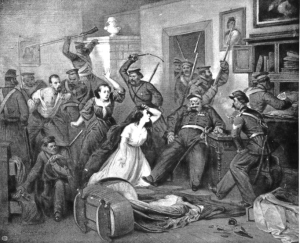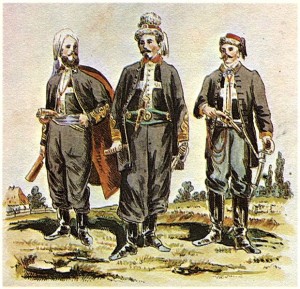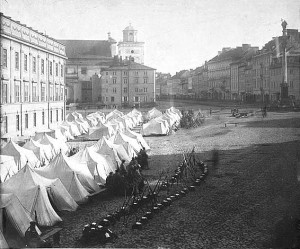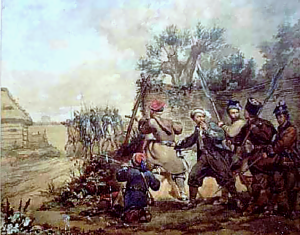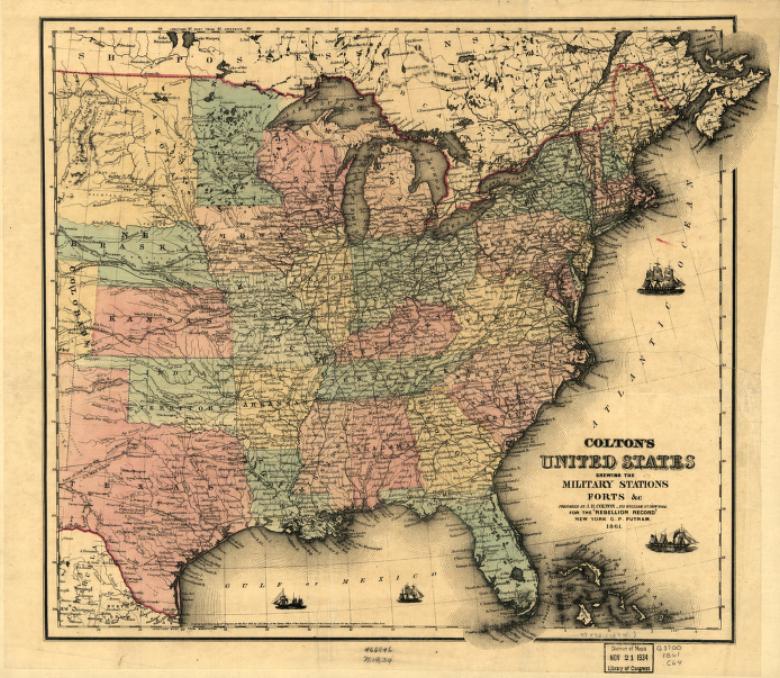… like Southerners are to the United States
A Richmond editorial ridiculed Yankee vanity and found common cause with Polish rebels fighting Russian despotism. European recognition and/or intervention is pretty much a lost cause.
From the Richmond Daily Dispatch April 4, 1863:
Certified vanity.
The insurrection in Poland is called in the United States as a lucky event for the fortunes of despotism on this continent, because it will give the Western European Powers, and especially France, plenty to do at home, without troubling themselves about American affairs. The advantage is rather imaginary than real. There was no reason before the Polish insurrection occurred to anticipate any intervention of Europe on behalf of the South. England has stubbornly resolved to take no part in our quarrel, and France does not make any important move without England.
In another respect the United States will derive little aid and comfort from the Polish rebellion. It is one of the vainest of nations, and its vanity has been inordinately fed by the attention it has lately attracted in the civilized world. It did not much care how it was spoken of, so it was only spoken of. It enjoyed amazingly the sensation its great war was awakening in Europe, and its journals eagerly copied, and its people hungrily devoured every London and Paris newspaper article which its sayings and doings elicited. Its vast armies and fleets were intended to astonish Europe as well as subjugate the South, and its conquering heroes revelled in the idea of a world-wide notoriety.–Now it must stand back and divide with the Great Bear the notoriety of which it is so covetous. The Old World can devote henceforth but little attention to American affairs, and the United States, must content itself with a contracted provincial reputation.
The world always admires reality, and never permits itself to be interested by sham when it can get a genuine article. The Emperor of Russia is a bona fide glint [giant?] in war, an open and above-board despot, who never pretended to know the meaning of popular or national rights and who has not crept through obscure and tortuous bye-ways to a tyrant’s place and power. Moreover, when he shall call into the field an army of a million of men all Europe understands that it will not be an army in buskram; when he puts down his foot firmly a continent trembles under his tread. The interests of Western Europe, and of the civilization of the world, are intimately interwoven with the foreign policy of the Czar, and they will scarcely turn a glance Westward, till the gigantic struggle at their own threshold has terminated. The U. S. have never at any time absorbed much of the attention of mankind, except as the prolific plantation of cotton and tobacco. The present war has given it a degree of notoriety which it never before possessed; an evil reputation, it is true, but that was more acceptable to its people than no reputation at all. It must now be content to subside into comparative [obs]curity, and to sink from starring it to becoming a provincial stock actor of inconsiderable celebrity. The South, which is not fighting for fame, but for life and all that makes life dear, has no reason to be mortified by the sensation which another gallant people, fighting like itself in the cause of national independence, is producing in Europe. On the contrary, our own hearts are cheered by the inspiring resistance to tyrants which is being roused in Europe as well as America. The Poles are a nation of historic renown, struggling for their proper place among the nations with a self-sacrificing patriotism, which years of oppression seem not able to extinguish.–Let the North take warning by events in Europe. A nation of whereas may be conquered, but they cannot be kept down. Though crushed to earth they will rise again and again, and so long as the breath of life remains, will, at every opportunity, assert and re-assert their independence.
The January Uprising (January 22, 1863 – 1865)
began as a spontaneous protest by young Poles against conscription into the Imperial Russian Army, and was soon joined by high-ranking Polish-Lithuanian officers and various politicians. The insurrectionists, severely outnumbered and lacking serious outside support, were forced to resort to guerrilla warfare tactics. They failed to win any major military victories or capture any major cities or fortresses …

